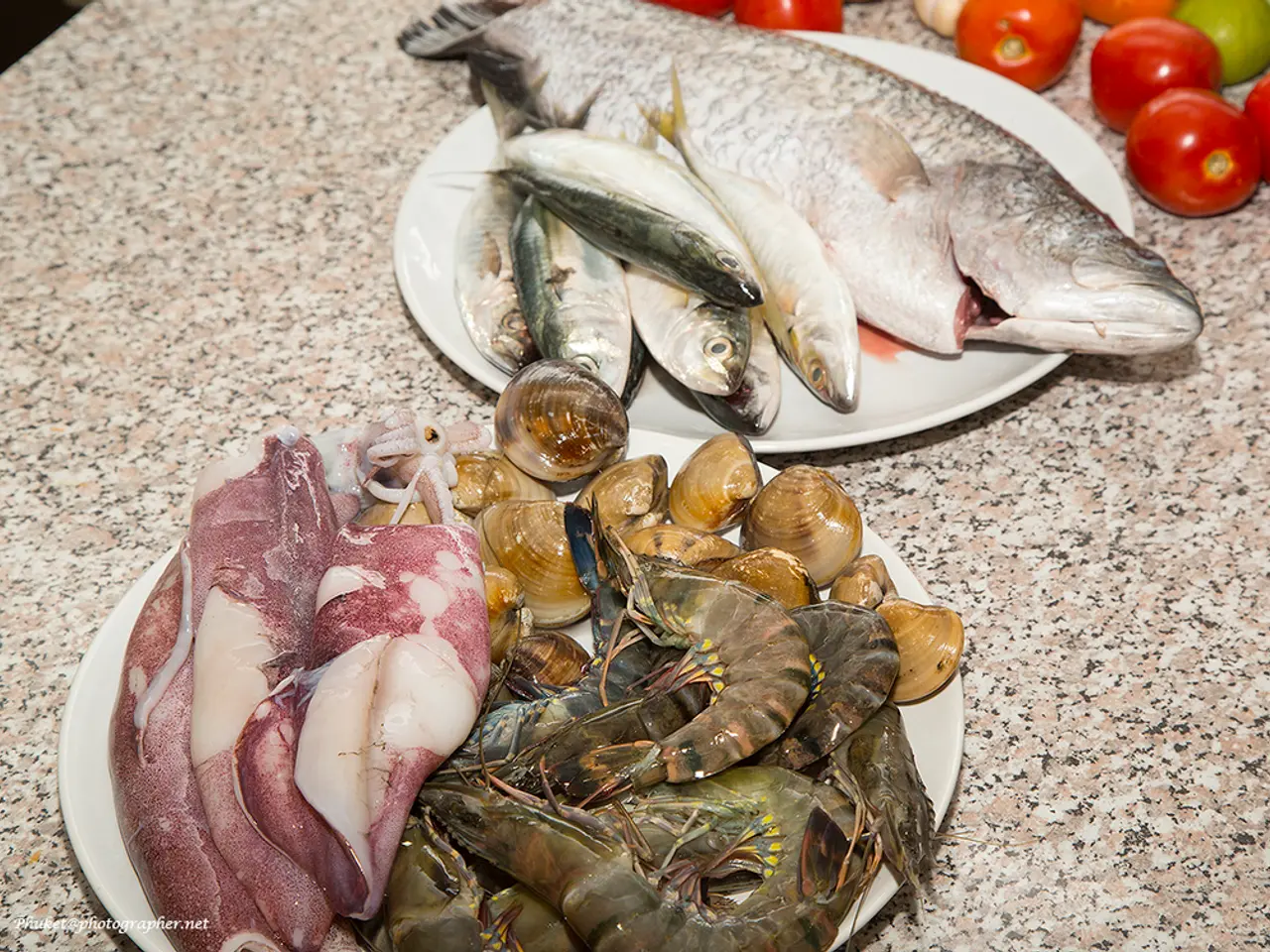Which diet offers the best outcomes for weight loss and lowered cholesterol levels?
Lowering Cholesterol with a Plant-Based Diet
A vegan diet, which excludes all animal products and focuses solely on plant-based foods, may offer significant benefits for lowering LDL ("bad") cholesterol levels. This diet plan emphasizes foods rich in soluble fiber, healthy fats, and plant sterols while minimizing saturated and trans fats.
By incorporating foods such as oats and barley, lentils and beans, fatty fish (such as salmon, mackerel, and sardines), nuts, avocado, fruits, and vegetables, you can help support cardiovascular health.
Oats and barley, high in beta-glucan, a soluble fiber, bind cholesterol in the gut and aid in its removal from the body. Lentils and beans, rich in soluble fiber and plant-based protein, slow digestion and reduce cholesterol absorption.
Fatty fish, like salmon, mackerel, and sardines, contain omega-3 fatty acids that lower triglycerides and may increase beneficial HDL cholesterol. Nuts, such as almonds and walnuts, provide unsaturated fats, fiber, and plant sterols that help lower LDL cholesterol. Avocado, rich in monounsaturated fats and fiber, has been shown to reduce LDL cholesterol without affecting HDL.
Fruits and vegetables, especially those high in soluble fiber and antioxidants, play a crucial role in cholesterol lowering. Raspberries, for example, provide about 8 grams of fiber per cup.
In contrast, it's important to limit processed foods, refined carbohydrates, trans fats, and saturated fats from red meat and full-fat dairy, as these raise LDL cholesterol and promote heart disease risk.
Research supports the benefits of a diet high in fiber, plant foods, unsaturated fats, and low in saturated and trans fats for lowering cholesterol. This includes the DASH (Dietary Approaches to Stop Hypertension) diet and the Mediterranean diet.
The DASH diet, which consists of vegetables, fruits, whole grains, fat-free or low-fat dairy, fish, poultry, beans, nuts, vegetable oils, and limits saturated and trans fats, added sugars, and sodium, has been shown to significantly reduce participants' total cholesterol levels by 4.9% and LDL cholesterol levels by 4%.
The Mediterranean diet, which focuses on vegetables, fruits, nuts, legumes, fish, whole grains, and extra virgin olive oil, and limits dairy, red meat, and processed meat, may also help lower cholesterol.
In addition to these diets, a vegan diet may help reduce the risk of cardiovascular disease and diabetes. A healthy vegetarian diet, which focuses mainly on plant foods but may include dairy and eggs, may have lower LDL cholesterol levels than omnivores. Research suggests that vegetarians typically have lower LDL cholesterol levels than omnivores.
Incorporating these foods regularly through meals like oatmeal, bean salads, fish dishes, avocado toast, and fruit snacks can help support cardiovascular health by lowering LDL cholesterol and improving overall lipid profiles.
1.Established scientific research supports the benefits of diets high in fiber, plant foods, unsaturated fats, and low in saturated and trans fats, like the DASH diet and the Mediterranean diet, for lowering cholesterol levels in individuals.
2.A vegan diet, by focusing solely on plant-based foods, can help establish significant benefits for lowering LDL ("bad") cholesterol levels due to the diet's emphasis on foods rich in soluble fiber, healthy fats, and plant sterols.
3.Just like fatty fish, such as salmon, mackerel, and sardines, and nuts, such as almonds and walnuts, avocado, rich in monounsaturated fats and fiber, helps in lowering LDL cholesterol and plays a crucial role in cholesterol management.
4.In contrast, a person following a diet high in processed foods, refined carbohydrates, trans fats, saturated fats from red meat and full-fat dairy should expect elevated LDL cholesterol and a higher risk of heart disease.




